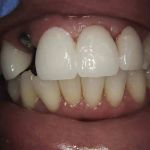Oral Thrush: An Overview
Oral thrush, also known as oral candidiasis, is a fungal infection that can affect anyone. It typically presents as creamy white lesions on the tongue, inner cheeks, and other parts of the mouth. These lesions may bleed when scraped and can cause significant discomfort and pain.
Symptoms and Causes of Oral Thrush
The symptoms of oral thrush can vary. Common signs include the presence of creamy white, slightly raised lesions in the mouth, especially on the tongue and inner cheeks. Other symptoms may include redness and soreness inside and at the corners of the mouth, loss of taste, a cottony feeling in the mouth, and pain when scraping or brushing the teeth. In severe cases, it can lead to difficulty swallowing, a feeling of food getting stuck in the throat, and even fever if the infection spreads.
The causes of oral thrush are often related to an imbalance in the natural flora of the mouth. Medications such as corticosteroids, antibiotics, and birth control pills can disrupt this balance and allow the Candida fungus to grow out of control. Certain health conditions like diabetes, anemia, HIV/AIDS, cancer, dry mouth, pregnancy, and smoking can also increase the risk of developing oral thrush.
Diagnosis and Tests for Oral Thrush
A healthcare provider can usually diagnose oral thrush by visually inspecting the mouth for the characteristic white lesions. A microscopic exam of tissue from a lesion or a throat culture may be performed to confirm the diagnosis. In cases where the infection is suspected to have spread to the esophagus, additional tests such as endoscopy or X-rays may be ordered.
Management and Treatment of Oral Thrush
The typical treatment for oral thrush involves antifungal medications. These can come in the form of tablets, lozenges, or liquids that are swished around in the mouth before swallowing. The duration of treatment usually lasts for 10 to 14 days, and the specific medication and duration depend on factors such as age and the cause of the infection. In individuals with healthy immune systems, the response to treatment is often positive and the thrush clears up within one to two weeks. However, for those with weakened immune systems, the symptoms may be more severe and the treatment more challenging.
Prevention of Oral Thrush
You can lower your risk of developing oral thrush by maintaining good oral hygiene, avoiding certain mouth products that can disturb the microbial balance, seeing your dentist regularly, especially if you have diabetes or wear dentures, limiting foods that encourage Candida growth, and quitting smoking.
Outlook and Prognosis of Oral Thrush
With proper treatment, oral thrush usually resolves within one to two weeks. However, if symptoms persist or worsen, it's important to consult your healthcare provider.
Living with Oral Thrush and When to Seek Medical Attention
If you develop symptoms of oral thrush, such as soreness, bleeding, or raised white areas inside the mouth, it's advisable to schedule an appointment with a healthcare provider. If you've already received treatment but the symptoms return, contact your provider promptly as it could indicate a more serious infection.
Additional Common Questions and Home Remedies for Oral Thrush
While antifungal medication is essential for clearing up oral thrush, some home remedies may help alleviate symptoms. These include swishing with warm saltwater, taking probiotics, eating yogurt containing healthy bacteria, and rinsing with apple cider vinegar. However, it's important to note that these remedies alone may not be sufficient for complete treatment.
Oral thrush is a common and manageable condition, but it requires proper diagnosis and treatment. Understanding the symptoms, causes, and available treatment options can help you take appropriate measures to restore your oral health. If you have any concerns or questions about oral thrush, always consult your healthcare provider for accurate advice and personalized treatment.



 Hutton Family Dental Ltd5.0 (54 review)
Hutton Family Dental Ltd5.0 (54 review) Sutter Dental Collective4.0 (83 review)
Sutter Dental Collective4.0 (83 review) Dr. Nick Wangler DDS0.0 (0 review)
Dr. Nick Wangler DDS0.0 (0 review) Cherry Hill Dental Excellence5.0 (534 review)
Cherry Hill Dental Excellence5.0 (534 review) Aspen Dental - Lees Summit, MO4.0 (592 review)
Aspen Dental - Lees Summit, MO4.0 (592 review) Smile Dental of New Rochelle5.0 (242 review)
Smile Dental of New Rochelle5.0 (242 review) The Importance of Oral Health Education During Pregnancy for a Healthy Pregnancy
The Importance of Oral Health Education During Pregnancy for a Healthy Pregnancy Best Tips for Brushing Your Teeth Properly for Healthy Gums: Essential Techniques for Oral Health
Best Tips for Brushing Your Teeth Properly for Healthy Gums: Essential Techniques for Oral Health Why Skipping Dental Checkups Can Lead to Bigger Oral Health Problems
Why Skipping Dental Checkups Can Lead to Bigger Oral Health Problems Advantages of Porcelain Dental Restorations
Advantages of Porcelain Dental Restorations How Can Diabetes Cause Tooth and Gum Problems? Preventing and Managing Oral Health Issues
How Can Diabetes Cause Tooth and Gum Problems? Preventing and Managing Oral Health Issues Healthy Habits for Promoting Good Oral Health and Hygiene: Tips for a Healthy Smile
Healthy Habits for Promoting Good Oral Health and Hygiene: Tips for a Healthy Smile